Background
William Broad was born on March 7, 1951, in Milwaukee, Wisconsin, United States.

1992
William Broad, journalist, writer, author.
2012
William Broad, journalist, writer, author.
William Broad, journalist, writer, author.
333 East Campus Mall, Madison, WI 53715, United States
William Broad earned a Master's Degree from the University of Wisconsin-Madison.
William Broad, journalist, writer, author.






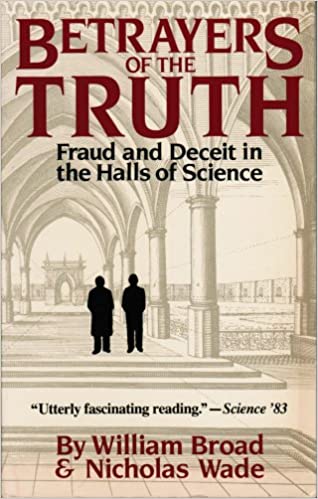
(Examines instances of scientific fraud in research areas ...)
Examines instances of scientific fraud in research areas ranging from astronomy and physics to biology and medicine, and assesses the influence of huge monetary rewards and enormous research organizations on corruption in science.
https://www.amazon.com/Betrayers-Truth-William-Broad/dp/0671495496/ref=sr_1_8?dchild=1&keywords=william+broad&qid=1587751679&s=books&sr=1-8
1982
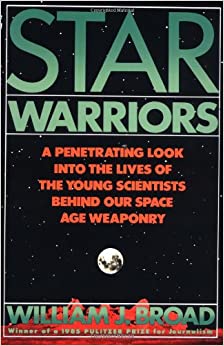
(Reveals the world and work of the physicists and mathemat...)
Reveals the world and work of the physicists and mathematicians of California's Livermore Lab, focusing on their endeavors to achieve breakthroughs that would make "star wars" weaponry a reality.
https://www.amazon.com/Star-Warriors-William-J-Broad/dp/0671628208/ref=sr_1_5?dchild=1&keywords=william+broad&qid=1587751679&s=books&sr=1-5
1985
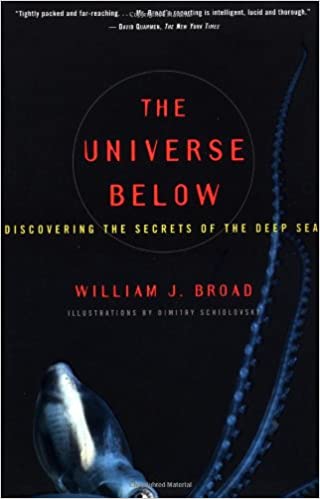
(William J. Broad takes us on an adventure to the planet's...)
William J. Broad takes us on an adventure to the planet's last and most exotic frontier - the depths of the sea. The Universe Below examines how we are illuminating its dark recesses as a wave of advanced technology quietly opens the Earth's largest and most mysterious environment. Broad takes us on breathtaking dives and expeditions - to the Azores, to the Titanic, to hot springs teeming with bizarre life, to icy fissures aswarm with gulper eels, vampire squids, and gelatinous beasts longer than a city bus.
https://www.amazon.com/Universe-Below-Discovering-Secrets-Deep/dp/0684838524/ref=sr_1_9?dchild=1&keywords=william+broad&qid=1587751679&s=books&sr=1-9
1997
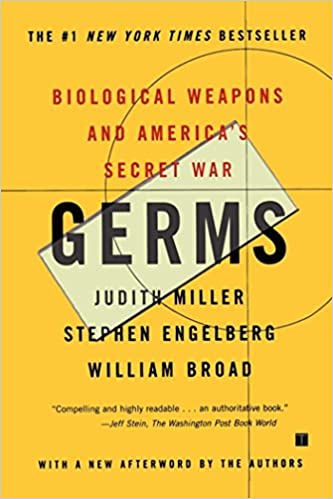
(In Germs, three veteran reporters draw on top sources ins...)
In Germs, three veteran reporters draw on top sources inside and outside the U.S. government to lay bare Washington's secret strategies for combating this deadly threat. Featuring an inside look at how germ warfare has been waged throughout history and what form its future might take (and in whose hands), Germs reads like a gripping detective story told by fascinating key figures: American and Soviet medical specialists who once made germ weapons but now fight their spread, FBI agents who track Islamic radicals, the Iraqis who built Saddam Hussein's secret arsenal, spies who travel the world collecting lethal microbes, and scientists who see ominous developments on the horizon.
https://www.amazon.com/gp/product/B006JDERQA/ref=dbs_a_def_rwt_hsch_vapi_tkin_p1_i0
2001
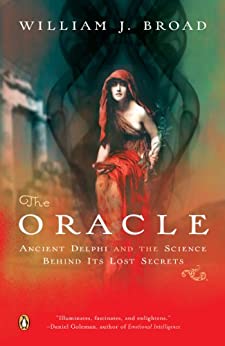
(A gripping modern-day detective story about the scientifi...)
A gripping modern-day detective story about the scientific quest to understand the Oracle of Delphi Like Walking the Bible, this fascinating book turns a modern eye on an enduring legend. The Oracle of Delphi was one of the most influential figures in ancient Greece. Human mistress of the god Apollo, she had the power to enter into ecstatic communion with him and deliver his prophecies to men.
https://www.amazon.com/Oracle-Ancient-Delphi-Science-Secrets-ebook/dp/B000S1LDHU/ref=sr_1_2?dchild=1&keywords=william+broad&qid=1587751679&s=books&sr=1-2
2006
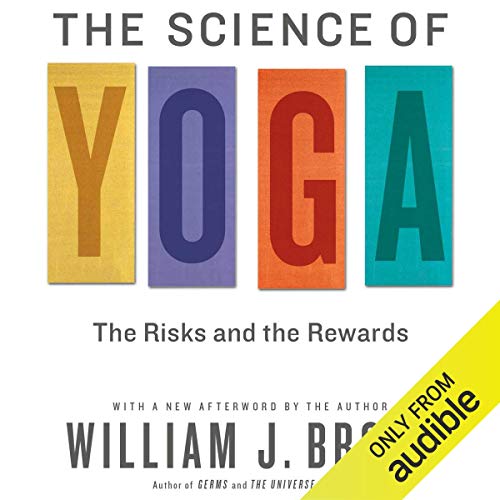
(In this remarkable book about yoga, William Broad, a life...)
In this remarkable book about yoga, William Broad, a lifelong practitioner, shows us that uncommon states are integral to a hidden world of risk and reward that lies beneath clouds of myth, superstition, and hype. Five years in the making, The Science of Yoga draws on more than a century of painstaking research to present the first impartial evaluation of a practice thousands of years old. It celebrates what's real and shows what’s illusory, describes what's uplifting and beneficial and what’s flaky and dangerous - and why.
https://www.amazon.com/Science-Yoga-Risks-Rewards/dp/B008OWVKY6/ref=sr_1_1?dchild=1&keywords=william+broad&qid=1587751679&s=books&sr=1-1
2012
William Broad was born on March 7, 1951, in Milwaukee, Wisconsin, United States.
William Broad earned a Master's Degree in the History of Science from the University of Wisconsin-Madison in 1977.
William Broad joined The New York Times in 1983 and writes about everything from exploding stars and the secret life of marine mammals to the spread of nuclear arms and the inside story on why the Titanic sank so rapidly. Before that, he worked in Washington for Science, the magazine of the American Association for the Advancement of Science.
Broad's media appearances include Larry King Live, The Charlie Rose Show, The Discovery Channel, Nova, The History Channel, and National Public Radio. His speaking engagements have ranged from the U.S. Navy in Washington, to the Knickerbocker Club in New York, to the Monterey Aquarium in California. He has also given talks at the Corcoran Gallery of Art in Washington, D.C., and the Council on Foreign Relations in New York City.
His first book, co-authored with Nicholas Wade, is Betrayers of the Truth: Fraud and Deceit in the Halls of Science. In this work, the authors expose several cases of scientists who, for one reason or another, lose their purely scientific pursuit of the truth in favor of the more compelling drive to in some way prove a favorite theory of theirs or to make a name for themselves.
Two years later, Broad published his Star Warriors: A Penetrating Look into the Lives of the Young Scientists behind Our Space-Age Weaponry. The book relates the story of a small team of young scientists working at Lawrence Livermore Laboratories in California.
Continuing along the same theme, Broad, together with several colleagues from the New York Times, published Claiming the Heavens: The "New York Times" Complete Guide to the Star Wars Debate in 1988. The book answers very critical questions about President Reagan's Star Wars plan.
In his next book Teller's War: The Top-secret Story behind the Star Wars Deception, Broad turns his full focus on the Hungarian-born Teller, a scientist who continually went over the heads of scientific colleagues and into the corridors of Washington to lobby for some pet scheme: the hydrogen bomb in 1950, a weapons laboratory of his own in 1952, the so-called "clean bomb" in 1957.
In 1997, Broad turned to a less controversial topic with his book The Universe Below: Discovering the Secrets of the Deep Sea. In it, he reports that new discoveries have shown that life is much more abundant in the ocean than previously thought. The number of species found in the depths of the ocean might actually constitute more than all the creatures found on land, scientists are now surmising. The book explores these new developments, as well as the political debates that occurred during the Cold War surrounding the military's involvement in developing submersibles that were capable of searching the bottom of the ocean. At the end of the Cold War, the technology the U.S. Navy produced was declassified and put to use by private and scientific industries.
Broad's Germs: Biological Weapons and America's Secret War was published in 2001. It is a joint effort by the New York Times staff members who made a study of bioterrorism. One of the members of the writing team, Judith Miller, was a victim of bioterrorism, having received a letter laced with anthrax following the attack on the World Trade Center. Germs made the New York Times bestseller list, eventually hitting the number one position. In the book, the three reporters cover the history of bioterrorism, such as a detailed account "of bioweapons programs, including the United States' largely secret experiments during and after World War II, the former Soviet Union's massive buildup after signing a ban on such weapons in 1972 and Saddam Hussein's push to develop a smorgasbord of deadly pathogens in Iraq.
In more than thirty years as a science journalist, William Broad has written hundreds of front-page articles and won every major journalistic award in print and film. He won two Pulitzer Prizes with Times colleagues, as well as an Emmy and a DuPont. He was a Pulitzer finalist in 2005 for articles written with Times colleague David E. Sanger on nuclear proliferation.
(Examines instances of scientific fraud in research areas ...)
1982(In this remarkable book about yoga, William Broad, a life...)
2012(Reveals the world and work of the physicists and mathemat...)
1985(A gripping modern-day detective story about the scientifi...)
2006(In Germs, three veteran reporters draw on top sources ins...)
2001(William J. Broad takes us on an adventure to the planet's...)
1997William Broad has practiced yoga since 1970.
William Broad has three adult children and lives with his wife in the New York metropolitan area.
